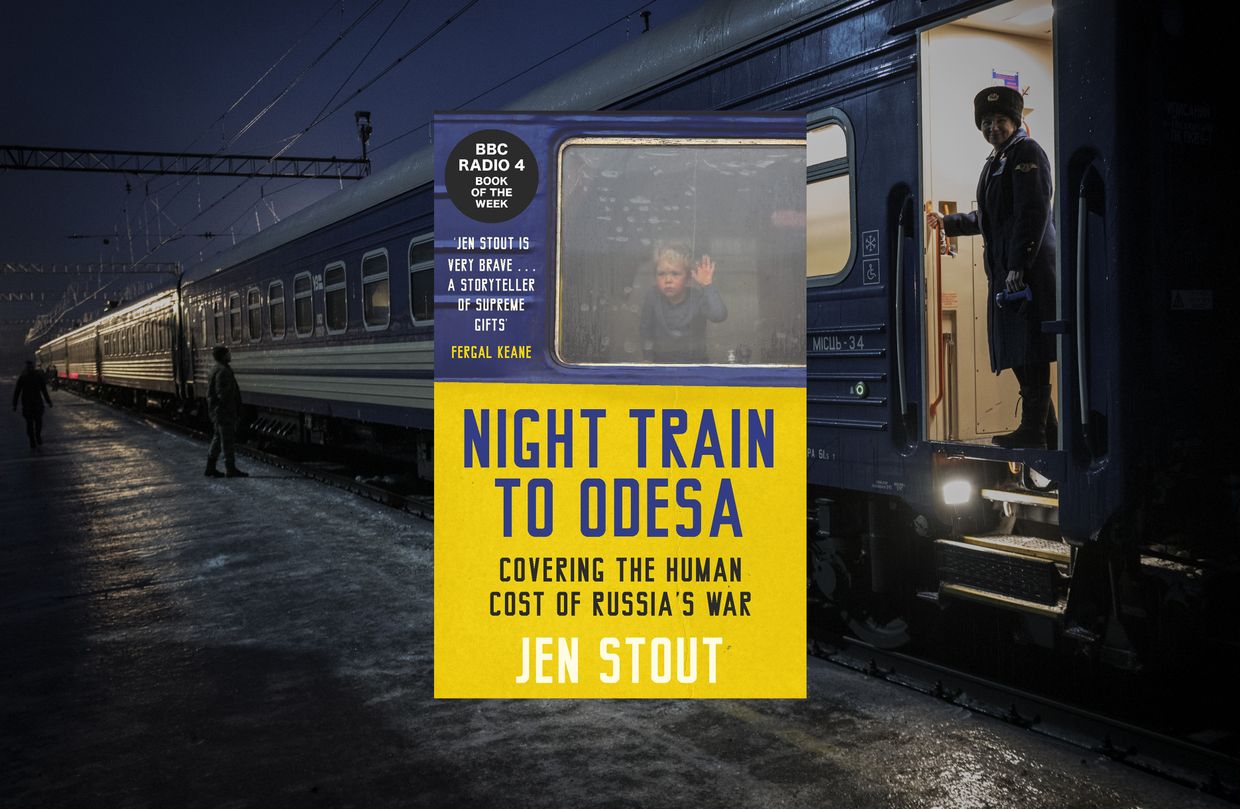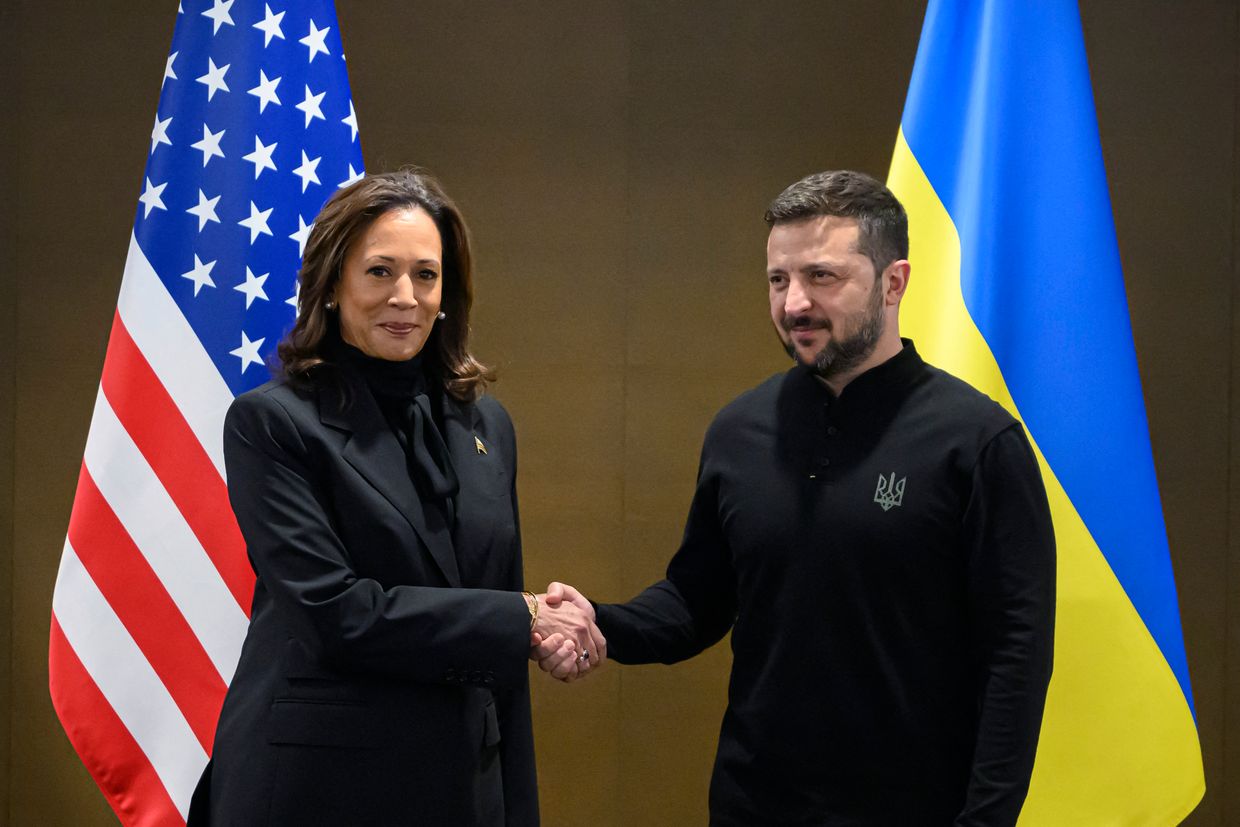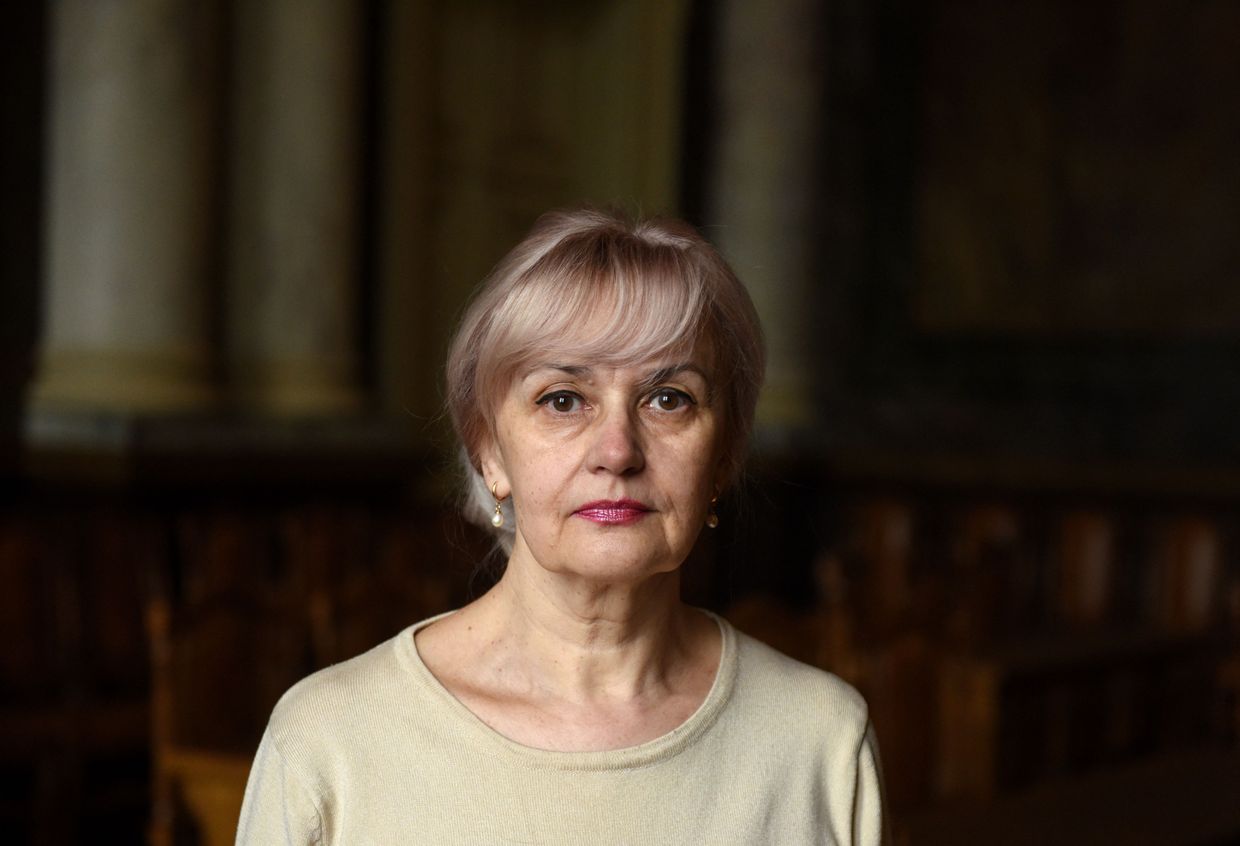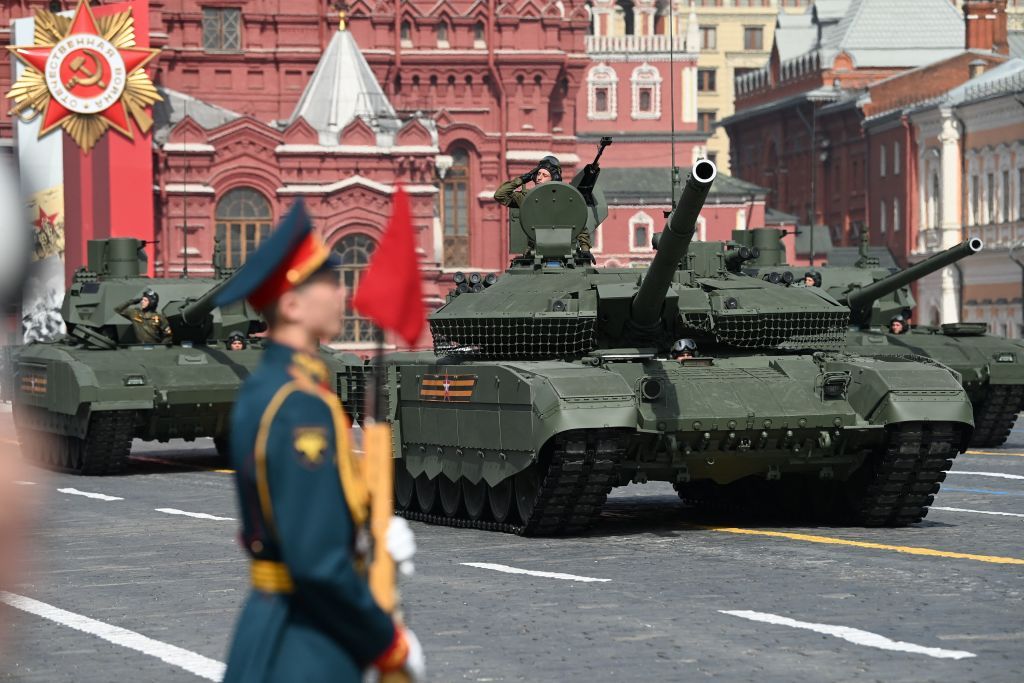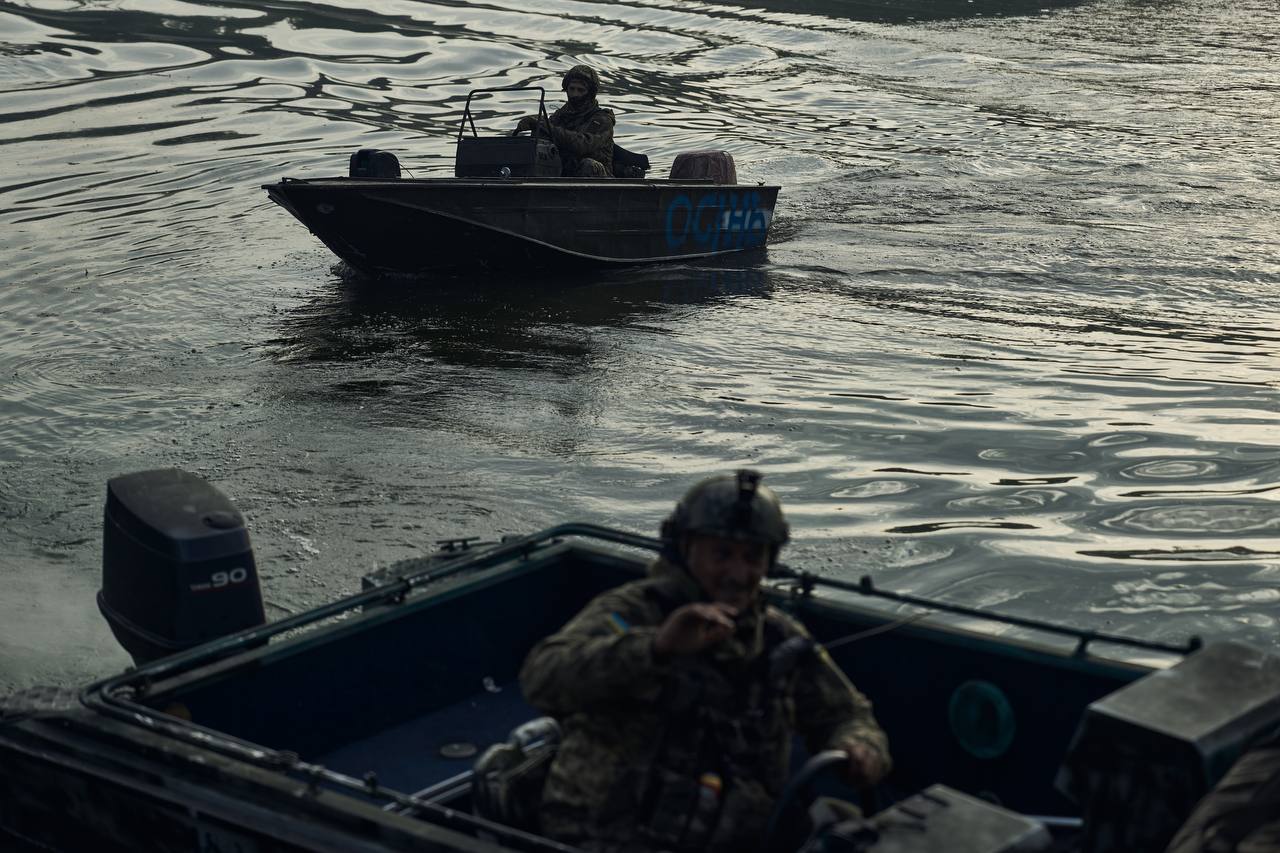At a bar in Moscow leading up to Russia’s full-scale invasion of Ukraine, reporter Jen Stout interrupts a local parroting lines of propaganda from state-controlled television about so-called Ukrainian Nazis by asking him if he’s ever actually been to Ukraine. He seems taken aback by such a simple and logical question, responding with “Why would I go there?”
The man's lack of moral fortitude and self-reflection, now synonymous with many Russians’ attitudes toward the war against Ukraine, starkly contrasts with the rest of Stout’s “Night Train to Odesa.” At its core, the book is a heartfelt tribute to those who embody the best of humanity, even amid the horrors of all-out war surrounding them.
Originally from Scotland, Stout finds herself in Russia on a fellowship before Feb. 24, 2022. The onset of the invasion leads her to travel to southeast Romania to report on Ukrainian refugees crossing into the European Union. She then begins to report from on the ground in Ukraine, eventually making her way to the decade-long embattled cities on the front line in Donetsk Oblast.
Some of the most compelling parts of the book are dedicated to her time spent in Odesa and Kharkiv at the start of the invasion. This is not only because these two major cities remain constant targets of Russian attacks over two years later but also due to the significant cultural shifts that have taken place there since then. As Stout astutely notes, the fact that these cities were predominantly Russian-speaking didn’t mean they were pro-Russian. The daily bombardments both cities continue to endure have only accelerated linguistic and cultural shifts that would have likely otherwise occurred more gradually without war.

“Night Train to Odesa” not only paints a nuanced picture of Ukrainian society at a pivotal moment in the country’s history but also offers a realistic portrayal of the demands of on the ground wartime reporting. Bringing the latest information on a war to a worldwide audience is crucial, but it is also emotionally draining and often life-threatening work. This is heightened by the fact that Stout, like many reporters, had no experience on the front line prior to Feb. 24, 2022.
Stout’s openness about her preparations for traveling deeper into Ukraine, and her candidness about moments of personal vulnerability when speaking to Ukrainians about the ways in which they are victims of Russia’s war, is both admirable and vital to the growing literature on wartime reporting.
Initially hesitant to travel further east than Odesa, Stout writes in depth about the necessity to enroll in safety training for journalists. Russia’s war against Ukraine has killed 91 media workers as of June 2024, according to Ukraine’s Culture Ministry. Another 30 media workers are being held in Russian captivity. According to Reporters Without Borders, 11 journalists were killed while on assignment. In the third year of the full-scale invasion, reporting on the ground is no less dangerous than it was when Stout crossed the border from Romania into Ukraine.
The emotional toll of such work is undeniable. While reporting from Romania on refugees crossing the border at the start of the full-scale invasion, Stout tears up at the sight of cars with “Children” written on what she describes as “flimsy” paper taped to their rear windshields “in the hope that it might stay the hand of a soldier with an automatic rifle, or half a tank lowering the barrel of its gun to aim.” She is encouraged from time to time by friends back at home in Scotland and on the ground to take time off, the importance of which she herself acknowledges.


Ukrainians also find ways to continue living despite the neverending terror of war. At the famous Pryvoz Market in Odesa, despite many supply routes being cut off at the start of the full-scale invasion, Stout describes how “the stalls seemed to stretch on forever” and that she hadn’t “seen such a variety of food” in her life. The locals tell her how the upcoming Orthodox Easter celebrations are a source of inspiration to keep on going — later, during a missile strike on the city, she talks to a survivor who tells her she’d been painting Easter eggs for her grandchildren at the time of the attack.
“Night Train to Odesa” also provides readers with a glimpse at the work of Ukraine’s culture sphere during wartime. Stout recounts her acquaintance with Victoria Amelina, the Ukrainian writer who became a war crimes researcher during the full-scale invasion. Amelina not only traveled throughout Ukraine but internationally: “Her mission was to make people finally understand what was going on in Ukraine: this wasn’t some dirty little civil war but rather centuries of imperialism, rampant and unchecked, coming to a head.”
Despite her busy schedule, Stout describes how generous Amelina always was with her time. Their plans to travel together to Donetsk Oblast or meet up in Ireland or Scotland were cut short when Amelina died on July 1, 2023, after succumbing to injuries sustained in a Russian missile strike in Kramatorsk.
“I was worried, when I heard the news, that some colleagues could have been inside (the pizzeria that was targeted),” Stout writes. “But I never thought it would be Victoria Amelina.”
Stout writes about the disappearance of children’s author Volodymyr Vakulenko in Kharkiv Oblast and how his family held out hope until his remains were identified in a mass grave in Izium following its liberation. Vakulenko had been taken by Russian occupation forces and shot dead for his pro-Ukrainian stance.
PEN Ukraine’s trips to front-line territories in Ukraine to deliver books to destroyed libraries and other vital aid are also recounted in the book. Stout travels with them to Kharkiv in a “ten-seater (bus) laden with musical instruments and carrying an assortment of novelists, local and foreign journalists and several academics.”
This trip would result in her spending a night in Kharkiv’s legendary Slovo building, which was once the home to some of Ukraine’s greatest artists in the first half of the 20th century before they were targeted, imprisoned, and killed during the Stalinist purges. One of the apartments now serves as the place of a literary residency that is managed by the Kharkiv Literary Museum and is attended by people from all over Ukraine and the world.
Tetiana Pylypchuk, the director of the Kharkiv Literature Museum, describes to Stout the importance of ongoing cultural events in Kharkiv during wartime. These events are part of a series coined "Fifth Kharkiv," a term inspired by Kharkiv-born intellectual Yuri Shevelov when he spoke of periods of cultural innovation in Ukraine’s second-largest city.


“It’s not a new identity for the city,” Pylypchuk explains, “but it’s broadening our identity, removing the Russian imperial identity. It’s like... a Kharkiv of dreams, of the future. That’s what Fifth Kharkiv is.”
Russia’s all-out war has also led to the forging of alliances between groups that previously would have had little to do with one another, as Stout describes. One example is the relationship between Kharkiv’s LGBTQ+ community and local football ultras turned volunteer battalions, the latter of which became crucial in defending Ukraine from 2014.
Much to Stout’s surprise, she is told by Ivanna, a local activist, that Kharkiv’s LGBTQ+ community “chipped in to fund these militia battalions, the same groups who harassed them in public.” Given the rampant attacks against the LGBTQ+ community in Russia, including legislation targeting them for “extremism,” they understood that if Russian forces advanced and occupied Ukrainian territory, a far worse fate awaited them. Like Odesa, Kharkiv managed to fend off Russian efforts to stoke unrest in 2014.
The appeal Ivanna made to Heorhii Tarasenko, the commander of the Freikorps Volunteer Unit, was simple: “I told him, when the tanks roll in we’ll be on the same side.” When he was later killed in action, she publicly mourned his death, even though he stood for values starkly opposed to her own.
Stout’s reporting doesn’t shy away from these ongoing issues within Ukrainian society. Indeed, this perceptiveness underscores the significance of Ukrainians coming together at a critical moment in their country’s history as most realize that, at least for now, Russia is everyone’s main enemy.
Note from the author:
Hi, this is Kate Tsurkan, thanks for reading this article. There is an ever-increasing amount of books about Ukraine available to English-language readers, and I hope my recommendations prove useful when it comes to your next trip to the bookstore. Ukrainian culture has taken on an even more important meaning during wartime, so if you like reading about this sort of thing, please consider supporting The Kyiv Independent.




